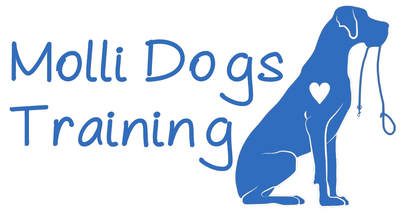Over the years I have studied canine nutrition quite a bit. I’m not saying I’m an expert by any means, but I have learned quite a lot. One of the first things I discovered was, as sad as it is, you CAN’T always trust your vet when it comes to canine nutrition!
I know this comes as a shock to a lot of people. Your vet is supposed to be the person you can turn to for any and all things relating to your dog’s health. However, something that all pet owners are going to have to come to terms with is this: VETS DON’T KNOW EVERYTHING!
I know this comes as a shock to a lot of people. Your vet is supposed to be the person you can turn to for any and all things relating to your dog’s health. However, something that all pet owners are going to have to come to terms with is this: VETS DON’T KNOW EVERYTHING!
First, it’s important to recognize that becoming a vet is one of the most difficult career choices to make. Often times their schooling is more difficult and rigorous than even that of regular doctors. Look at all the different ways you can specialize in the medical world; Primary Care Physician, Pediatrician, Gastroenterologist, Endocrinologist, Psychologist, Pharmacist, Allergist, Anesthesiologist, Surgeon, Urologist, Nutritionist - and that doesn’t even scratch the surface! A vet has to be all of these and more. And not just to one species, but to several! Unless a vet decides to take the time to specialize in one specific thing it’s simply unrealistic to expect them to know everything on every subject for every animal!
Becoming a Vet is HARD!
Vet Schools Skimp on Nutrition Education
Second, when it comes to canine nutrition, most vets only receive one required class on the subject in school - a very few U.S. schools require 2 classes, and I understand that one school requires 3. So unless your vet elected to take more (they usually don’t), his or her schooling was limited. And guess who creates the curriculum, hires the teachers, and passes out LOTS of free samples for these courses? Pet food companies! Usually Hills (think: Science Diet). It's a huge conflict of interest that creates the same problem in veterinary education that the pharmaceutical companies create within medical education.
This is why almost all vets seem to be so particular to Science Diet. It’s the only one they’ve ever really been taught about! And sadly, it is only a subpar food at best. Dog Food Advisor, my most trusted advocate when it comes to determining the quality of any dog food, only gives Science Diet foods a rating of 2-3 stars out of 5. I keep a personal rule to never give my dogs any food under 3.5 stars, but ideally 4 or higher. You can check out their breakdown of Science Diet and why they gave it that rating here. What’s more, in my own personal experience, I have never met a single dog that was able to stay on the basic Science Diet formula. Every single one, without fail, ended up having to be moved on to one of Hill's expensive specialty or medicated formulas at one point in time or another. Seriously, Science Diet! What the heck are you putting in your food that is forcing dogs to have to be put on specialty diets?!
This is why almost all vets seem to be so particular to Science Diet. It’s the only one they’ve ever really been taught about! And sadly, it is only a subpar food at best. Dog Food Advisor, my most trusted advocate when it comes to determining the quality of any dog food, only gives Science Diet foods a rating of 2-3 stars out of 5. I keep a personal rule to never give my dogs any food under 3.5 stars, but ideally 4 or higher. You can check out their breakdown of Science Diet and why they gave it that rating here. What’s more, in my own personal experience, I have never met a single dog that was able to stay on the basic Science Diet formula. Every single one, without fail, ended up having to be moved on to one of Hill's expensive specialty or medicated formulas at one point in time or another. Seriously, Science Diet! What the heck are you putting in your food that is forcing dogs to have to be put on specialty diets?!
Most Vets Don't Seek Out Additional Nutrition Education
Keep in mind that veterinarians can specialize in nutrition, both during school and through continued education after, even receiving nutrition certifications if they choose to do so. But as I mentioned above, most vets don't elect to take additional nutrition classes - there's simply too many other things they need to focus on. And it is my understanding that very few pursue after-school nutrition education options. If you're wondering about your vet's nutrition knowledge, you'll want to ask very specific questions about how many nutrition courses he or she has taken, what types of courses they were, what companies sponsored the courses, and whether or not he or she has received any certifications. This way, you'll know exactly what you're vet knows - and whether or not that knowledge is biased toward a particular pet food company.
The Difficult Truth
When it comes to canine nutrition, you are likely going to have to find out the facts and do all of the research yourself, because the pet food companies are NOT going to tell you - or your vet - the truth! They just want as many people as possible to purchase their brand - and only their brand.

 RSS Feed
RSS Feed